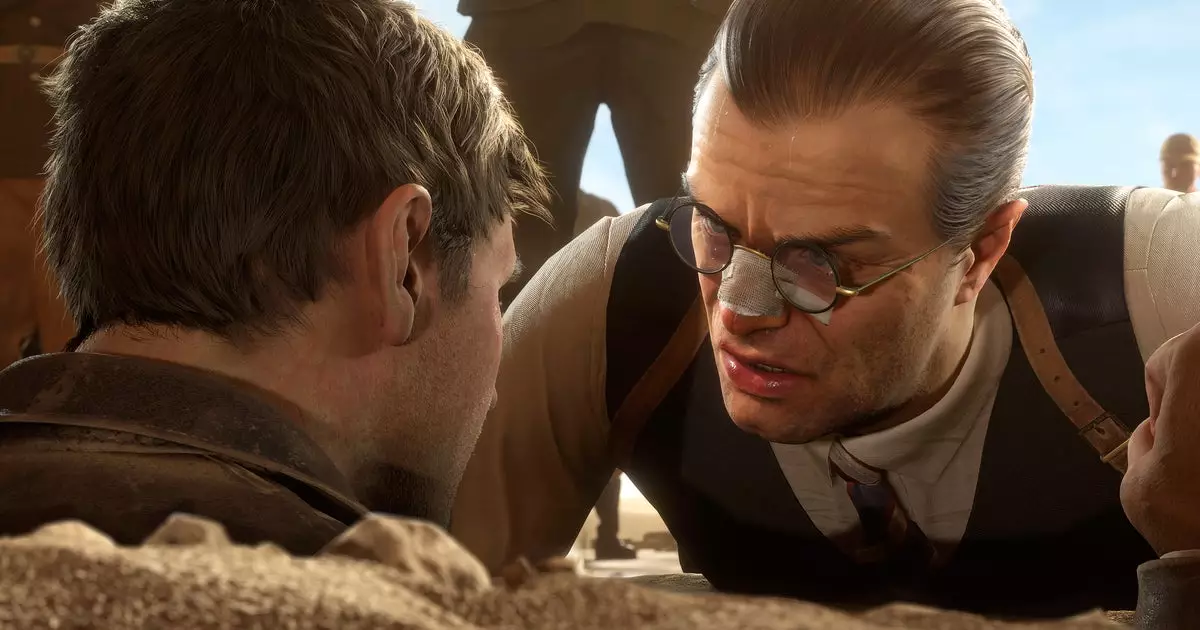The intersection of entertainment and historical accuracy often sparks intense debate, particularly in franchises that tread the delicate line between escapism and the realism of historical horrors. The Indiana Jones series, with its swashbuckling heroes and archetypal villains, epitomizes this struggle. The character of Indiana Jones, played by Harrison Ford, is famed for his catchphrase regarding Nazis: “Nazis—I hate these guys!” The statement, while clear in its condemnation, raises questions about the portrayal of such a grave historical atrocity within an entertaining narrative. This article explores the contradictions present in such representations, particularly in the upcoming title “Indiana Jones and the Great Circle.”
In “Raiders of the Lost Ark,” Indiana’s disdain for Nazi forces provides a symbolic backdrop for the film’s adventurous narrative. However, an examination of this sentiment reveals complications that merit scrutiny. While the iconic hero is unambiguously against the German National Socialist regime, his past encounters include interactions with individuals linked to this ideology—sometimes purely coincidental. For instance, his seduction of a Nazi in the film isn’t portrayed as a personal belief but rather as a series of misguided events. Such complexities can dilute the message of unequivocal resistance to fascism, leading to questions about the depth of his anti-Nazi sentiment.
The upcoming game, “Indiana Jones and the Great Circle,” promises a relentless fight against fascism, showcasing a gore-laden depiction of the regime’s downfall. The game allows players to engage actively in combat against Nazi forces, effectively framing the experience as a cathartic release. But can such representations genuinely reflect disdain for the ideology, or do they risk veering into dangerous territory by commodifying the trauma associated with it?
The Role of Disclaimers in Video Games
MachineGames and Bethesda, the developers behind “Indiana Jones and the Great Circle,” have taken the precaution of issuing an explicit disclaimer regarding the game’s content. This disclaimer serves to clarify that the narratives, characters, and actions portrayed are fictional and are not intended to glorify or endorse any extremist ideologies, including those of Nazis. The necessity of such disclaimers points to a broader concern: the potential misrepresentation and misinterpretation of interactive media by audiences who may extract the game’s visual elements to create their own implications—sometimes contrary to the creators’ intentions.
The disclaimer also serves as a reflection of legal requirements, particularly in nuanced regions like Germany, where regulations around depictions of Nazism have been significantly altered in recent years. The loosening of restrictions allows for artistic representations of the regime, but this new freedom also invites challenges. It raises questions about how creators can use this artistic license responsibly without trivializing the profound impact of the era’s atrocities.
One pressing concern present in the game’s premise is the potential for an inadvertently glorified version of violence. While the game allows players to engage morally upright actions by battling fascists, it risks transforming historical figures and regimes into mere pawns in a violent spectacle. This prompts a deeper reflection on the implications of violence embedded in entertainment: does it serve to educate, or does it transform history into an engaging narrative stripped of its weight?
The nature of the gameplay, described as a “Third Reich Bullying Simulator,” highlights a potential discrepancy between entertainment value and historical representation. When gaming mechanics revolve around violent confrontations with enemy factions, the danger lies in potentially developing a sense of sympathy or unintended glorification for those depicted—undermining the serious lessons history provides about totalitarianism.
As the Indiana Jones franchise embarks on this next chapter, it finds itself grappling with significant ethical questions underlying its adventurous appeal. The tension between escapist entertainment and the gravity of its subject matter requires careful navigation. Developers must ensure that their artistic creations do not circle back into dangerous territory—where historical horrors are repackaged into mindless violence, or worse, misconstrued as entertaining. As consumers, we too carry the responsibility to engage thoughtfully with such narratives, remaining vigilant against simplification of history while appreciating the power of storytelling in understanding our past.

